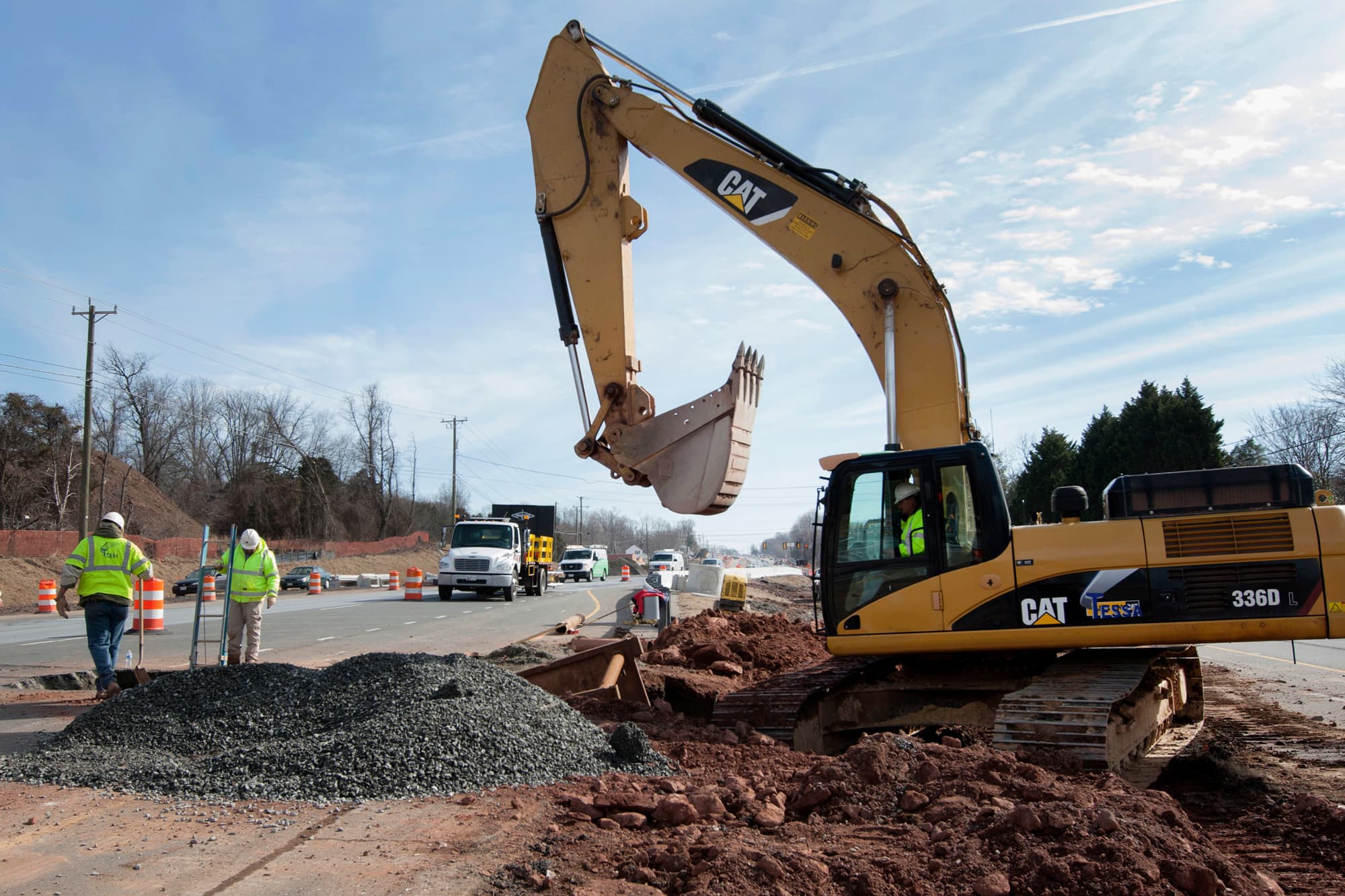
Construction workers on the Frederick Douglass Memorial Bridge in Washington, D.C., on Wednesday, May 19, 2021.
Al Drago | Bloomberg | Getty Images
Today, it can take a resident in Baltimore two hours to get to a job in DC by rail – or more by car on a bad day, if they are fortunate enough to own a car or live near frequent transit options.
For Richmond residents and employers who need access to the DC metro area, the options for commuting are even bleaker – relying on I-95 or the few viable transit options, despite being a relatively short distance away.
From talent and major corporate headquarters to world-class universities and global reach, the Capital Region from Baltimore to Richmond continues to stand out as a major part of the U.S. and global economy.
As the third largest economic region in the U.S. and seventh largest in the world, we now have an opportunity to be the best place to live and work — and the most inclusive region — in the nation.
But our infrastructure has held back far too many of the 10 million residents who call this place home. A Brookings report earlier this year showed the Capital Region has fallen behind our peers in terms of growth and racial inclusion in educational attainment, employment, business ownership, wealth creation, and health outcomes. The opportunities and unparalleled assets this region offers are out of reach for too many of our residents.
The Bipartisan Infrastructure Deal could change all of that.
The new bill signed into law Monday by President Biden presents a once-in-a-lifetime opportunity to build 21st century infrastructure systems that will change our region for the better.
At the Greater Washington Partnership – a civic alliance of business leaders and major employers from across the region – we understand the importance of this moment.
When we launched the Partnership five years ago, we first focused on regional mobility and infrastructure, knowing that a region that is better connected will be more equitable. Since then, we have continued to work across sectors to build an inclusive and resilient economy where people of all backgrounds and incomes can truly thrive.
We know that our region can overcome the impossible when we work together – especially when it comes to mobility. Together, we secured dedicated tri-state funding for the Washington Metro Area Transit Authority in 2018, landed Amazon’s HQ2 in 2019, and the ushered in the biggest rail deal since the birth of Amtrak through the Transforming Rail in Virginia program in 2021.
Our motto has always been our superpower: when one wins, we all win. Our public, private, and civic leaders have repeatedly demonstrated that we have the talent and commitment necessary to leverage the historic BID opportunity and build a more inclusive and equitable region.
By working collaboratively across the region, the new federal infrastructure funding can:
- Deliver an expansion program for the transit system in the Baltimore metro area, which has not expanded its rapid rail transit network this century;
- Revolutionize our regional rail network by building a new Frederick Douglass Tunnel in Baltimore, modernizing Washington Union Station, and unlocking economic potential by connecting the Northeast and Southeast rail corridors by building a new Long Bridge;
- Remove historic wrongs and reconnect once thriving communities by filling in the Highway to Nowhere in West Baltimore and capping I-95 in Richmond which divides the historic Jackson Ward;
- Expand the nationally recognized Pulse Bus Rapid Transit network in Richmond;
- Create thousands of new family-sustaining infrastructure jobs through local hiring provisions for infrastructure project;
- Grow the most diverse infrastructure supplier network and minority business enterprise ecosystem in the U.S.; and
- Remove the region’s worst roadway bottleneck by replacing the American Legion Bridge.
These efforts are all already in the region’s planning pipeline, but with the enactment of the BID and strong commitment from the region’s leaders, we can accelerate our progress, raise our collective expectations for what we can achieve in the next decade, and leave behind more equitable, accessible, and sustainable infrastructure for our children.
It’s up to us now – our elected officials across the region in collaboration with business and public sector and community leaders – to seize this opportunity and turn this historic bipartisan deal into action. The Capital Region is ready to build the workforce and infrastructure systems to make ours the most inclusive and globally competitive region in the country.
Peter L. Scher is the chairman of the board and co-founder of the Greater Washington Partnership, and vice chairman of JPMorgan Chase & Co.




